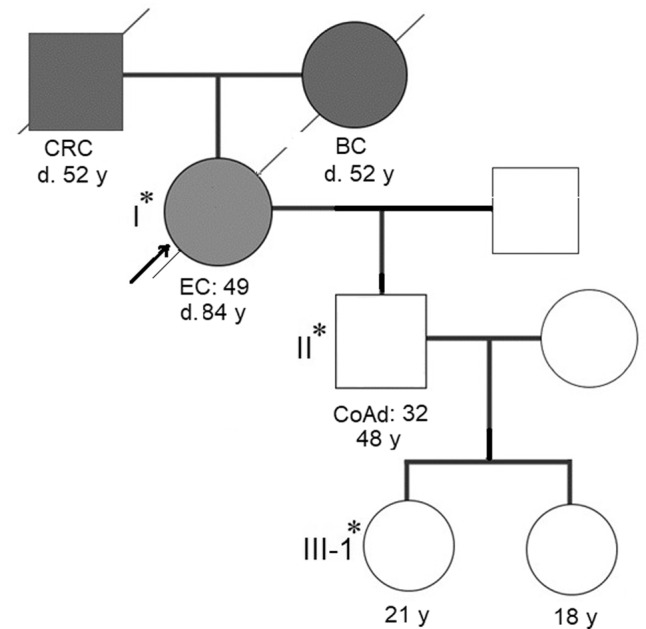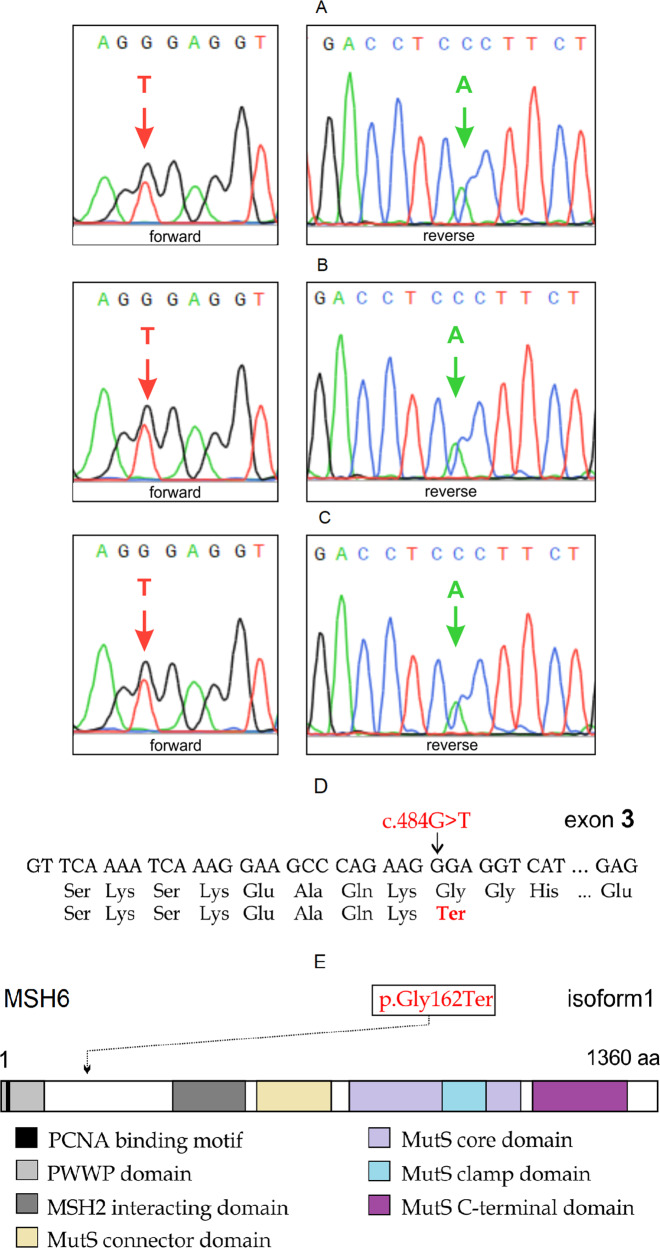与Lynch综合征相关的MSH6种系致病变异p.Gly162Ter。
IF 1
Q4 GENETICS & HEREDITY
引用次数: 1
摘要
我们鉴定了一个三代俄罗斯Lynch综合征家族,该家族具有MSH6基因的一种新的种系变异。一位84岁的女性在49岁时被诊断为子宫内膜腺癌。她的儿子在32岁时被诊断出患有结肠管状腺瘤。全外显子组测序结果显示,MSH6基因外显子3存在一种系无义变异(c.484 G > T:p.Gly162Ter)。Sanger测序证实了家族成员中MSH6无义变异的共分离。本文章由计算机程序翻译,如有差异,请以英文原文为准。


An MSH6 germline pathogenic variant p.Gly162Ter associated with Lynch syndrome.
We identified a three-generation Russian family with Lynch syndrome with a novel germline variant of the MSH6 gene. An 84-year-old female was diagnosed with endometrial adenocarcinoma at the age of 49 years. Her son was diagnosed with colorectal tubular adenoma at the age of 32 years. A germline nonsense variant (c.484 G > T:p.Gly162Ter) in exon 3 of the MSH6 gene was revealed by whole-exome sequencing. Sanger sequencing confirmed the cosegregation of the MSH6 nonsense variant in family members.
求助全文
通过发布文献求助,成功后即可免费获取论文全文。
去求助
来源期刊

Human Genome Variation
Biochemistry, Genetics and Molecular Biology-Genetics
CiteScore
2.30
自引率
0.00%
发文量
39
审稿时长
13 weeks
 求助内容:
求助内容: 应助结果提醒方式:
应助结果提醒方式:


